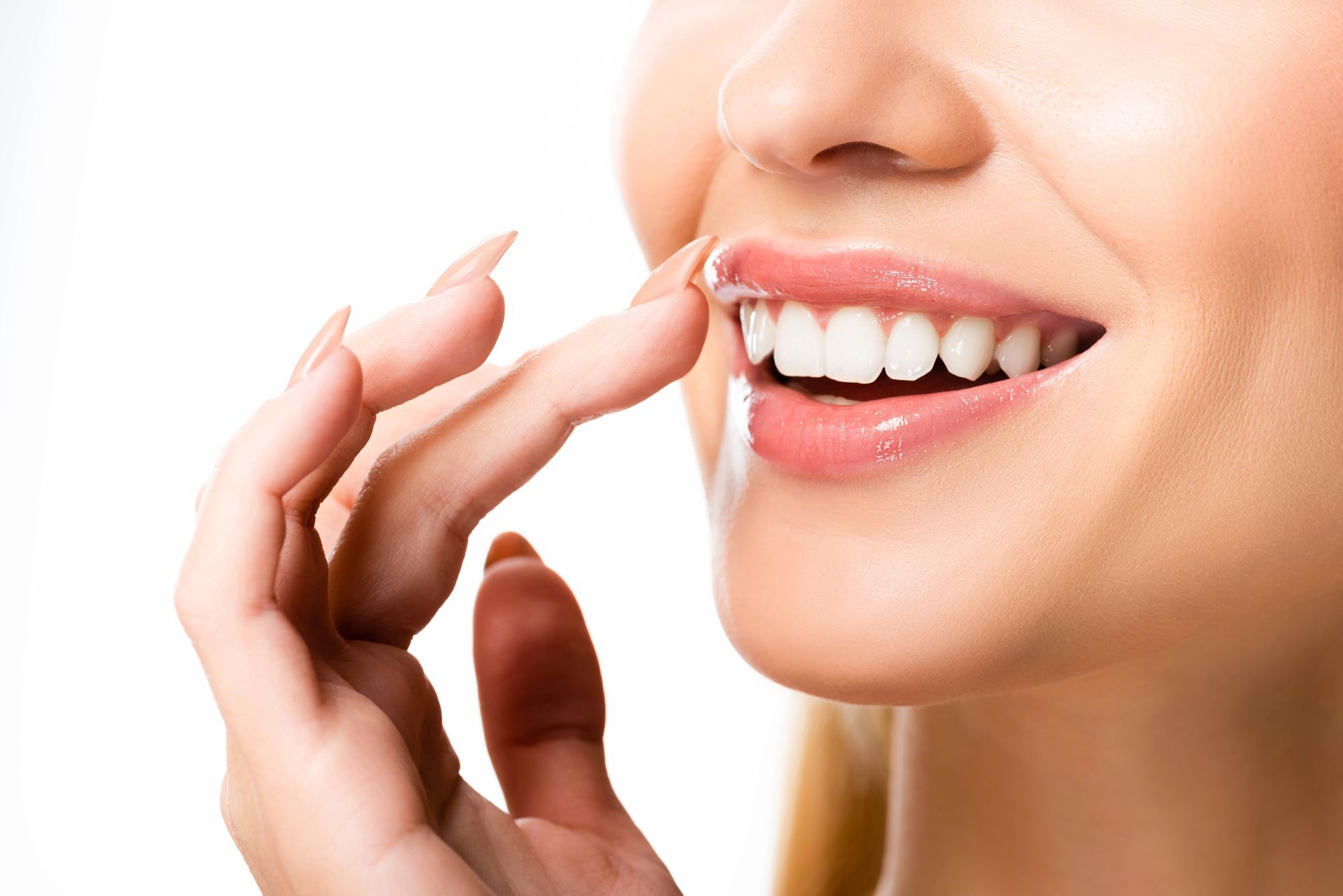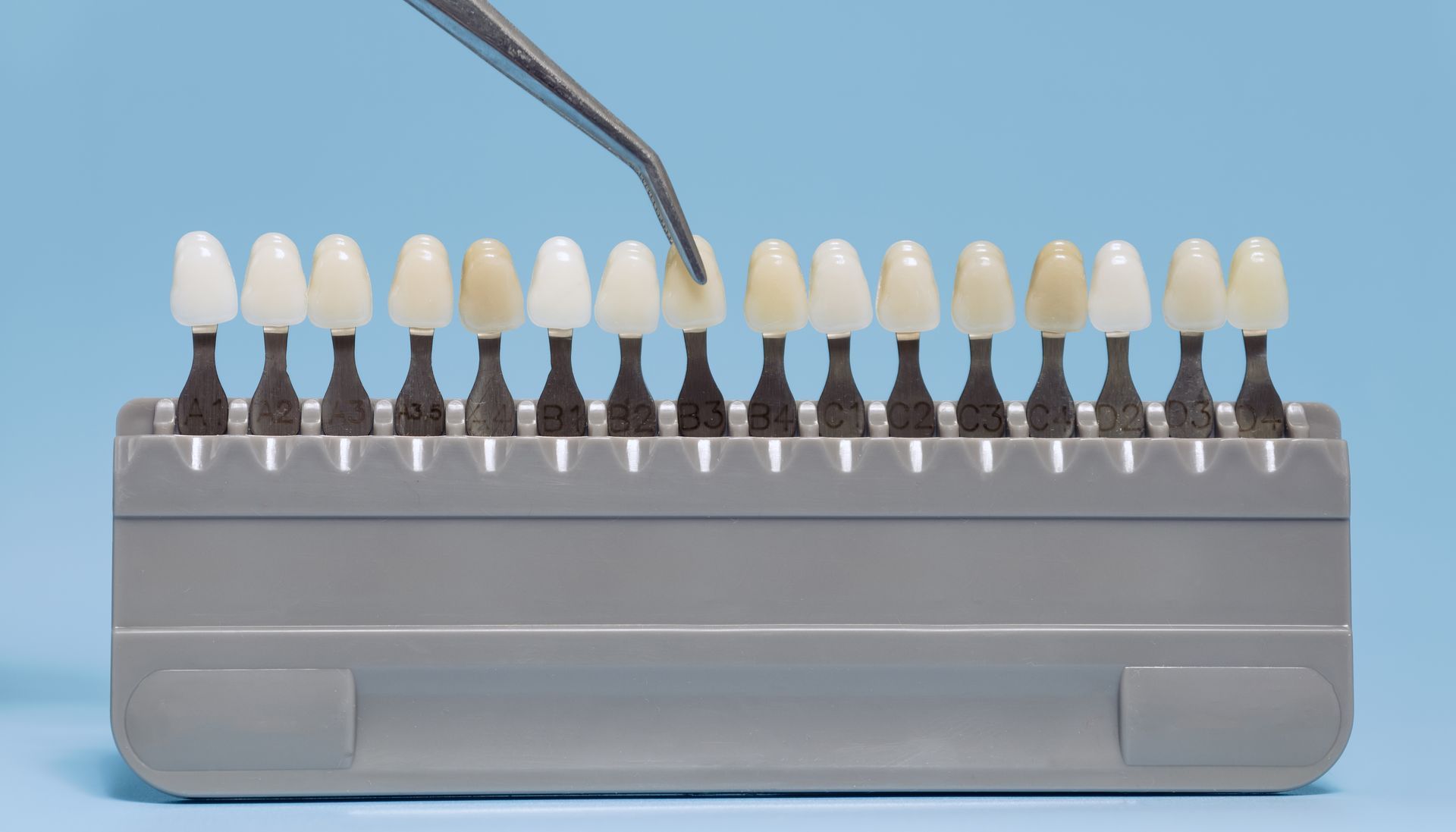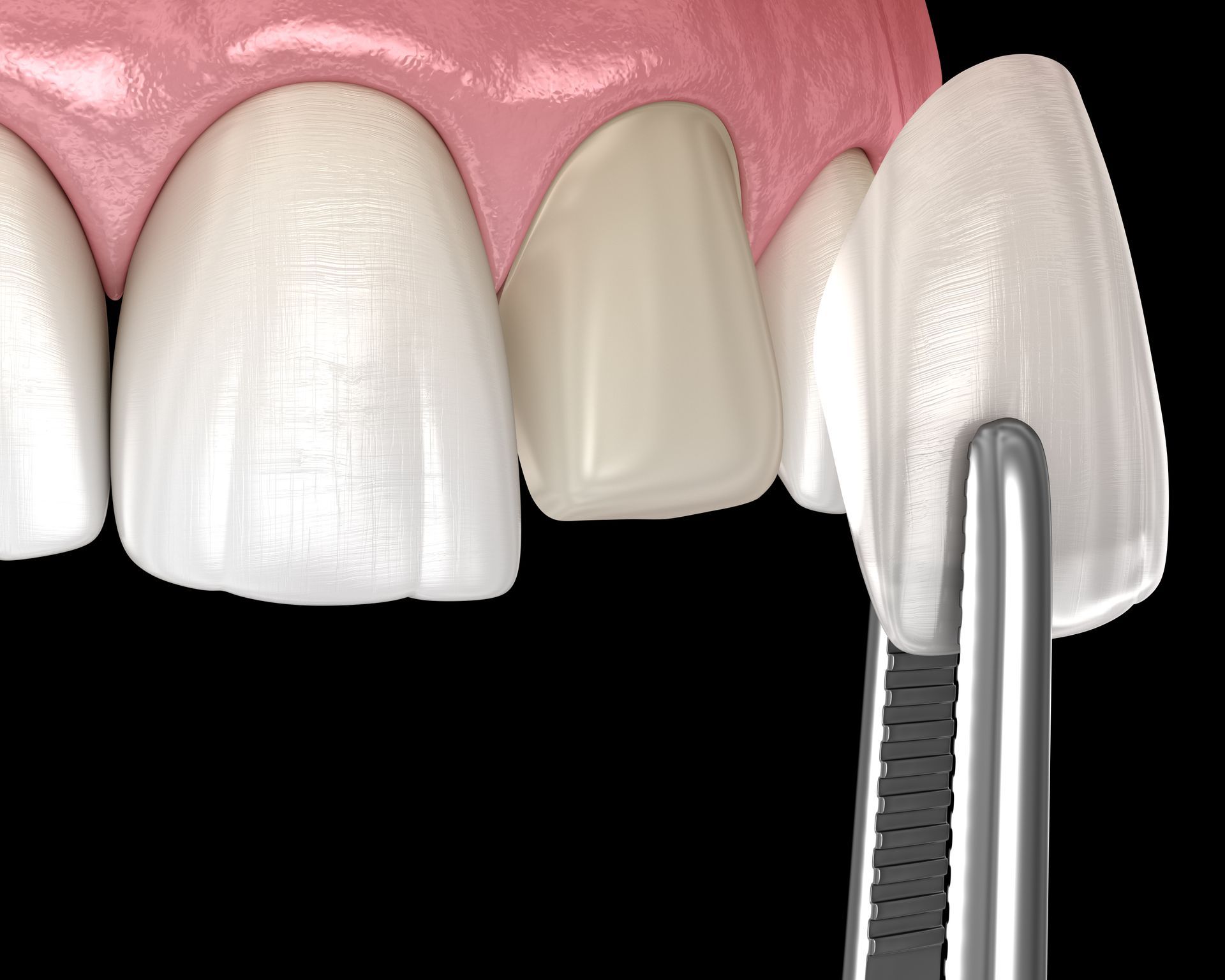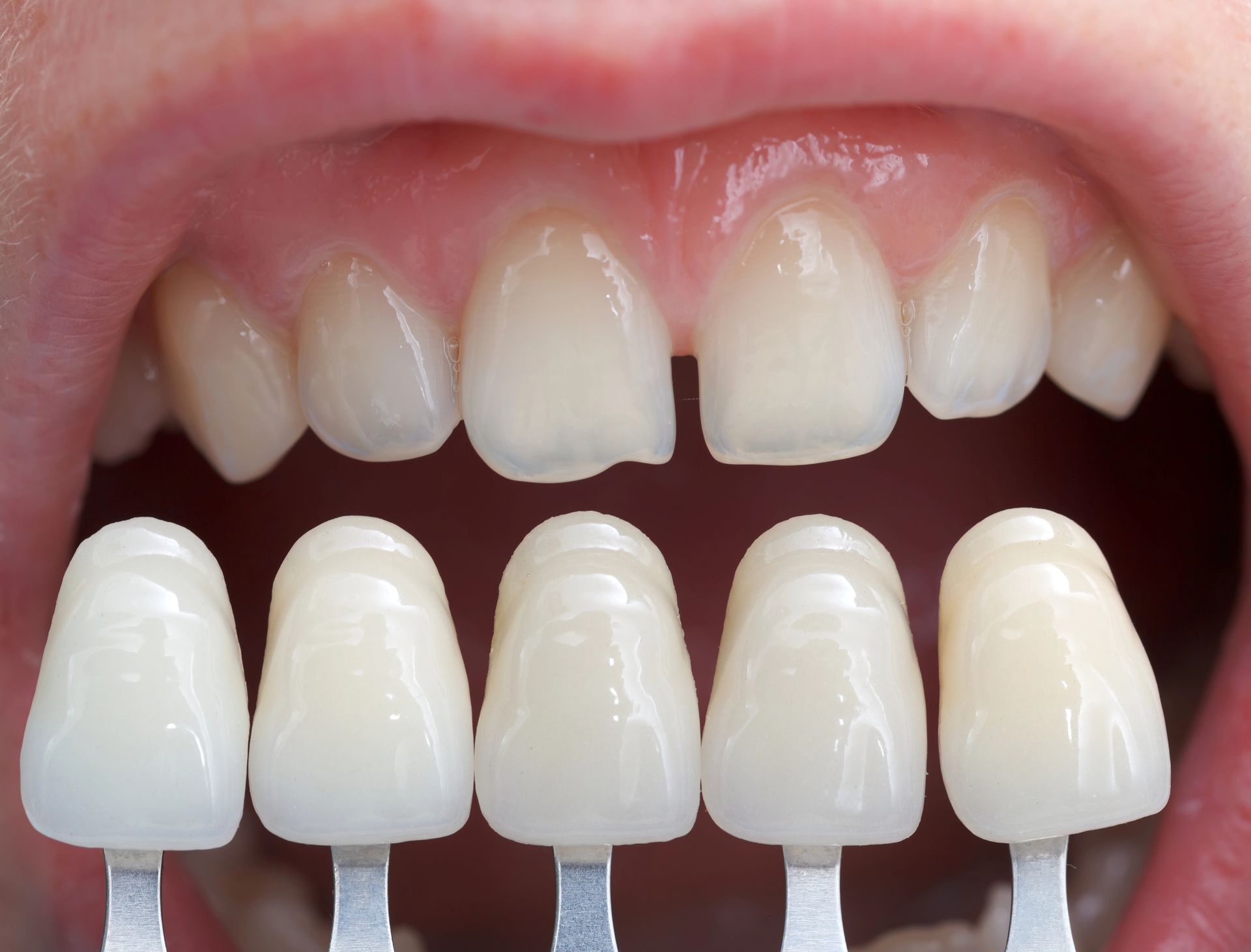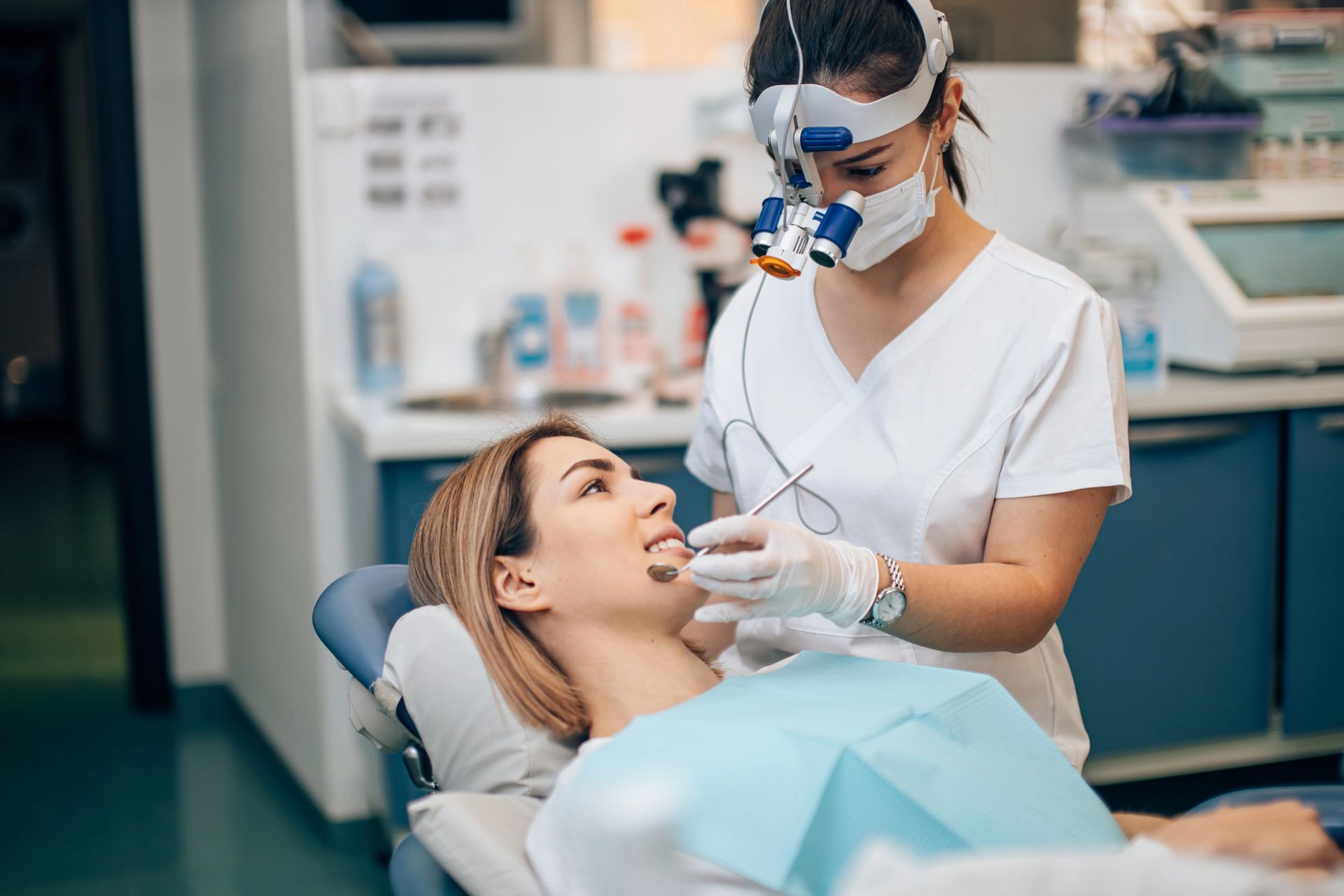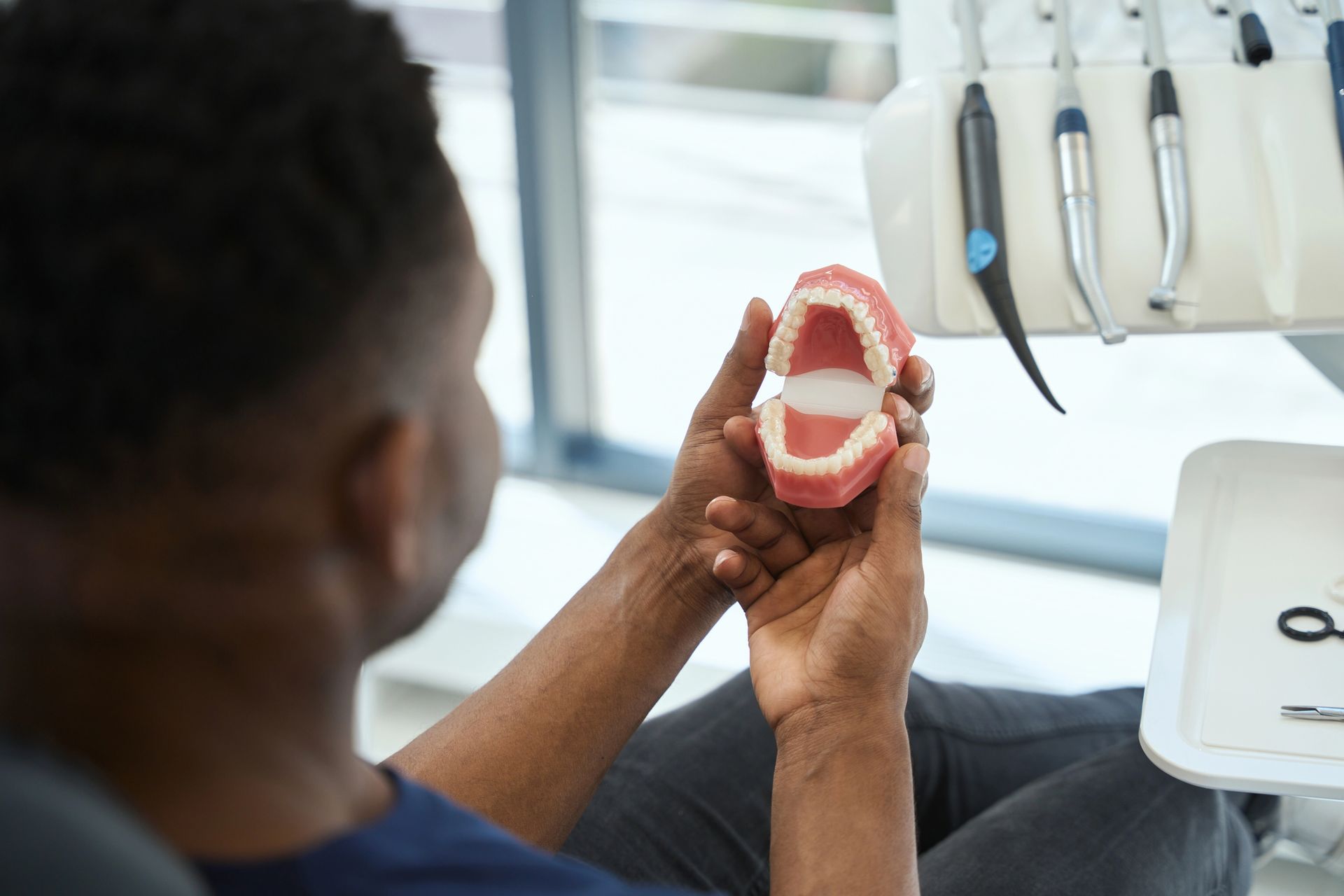
Are you curious about dental veneer maintenance tips to keep your veneers in top shape? Proper care ensures their longevity and maintains their aesthetic appeal, allowing you to enjoy a bright smile for years. Dental Veneer Maintenance Tips Understanding Dental Veneers is crucial for anyone looking to maintain their smile. Dental veneers are thin shells designed to cover the front surface of teeth, enhancing their appearance. They are typically made from porcelain or composite resin materials and are custom-fitted to each individual's teeth. While they are durable, understanding the basics of dental veneer maintenance tips can help ensure they remain in excellent condition over time. For those new to veneers, it's important to familiarize yourself with the process and what it entails. You can learn more about the journey by visiting our page on Getting Veneers for the First Time: What to Expect Before and After . This resource provides valuable insights into the initial steps and aftercare, which are essential for maintaining the longevity and appearance of your veneers. Benefits of Natural-Looking Veneers Natural-looking veneers offer a seamless blend with your existing teeth, enhancing your smile without drawing attention to the fact that you have had dental work done. These veneers are crafted to mimic the translucency and color of natural teeth, providing a realistic appearance that boosts confidence and self-esteem. By maintaining your veneers properly, you can ensure they continue to look as natural as the day they were applied. Incorporating dental veneer maintenance tips into your routine is essential for preserving the aesthetic appeal of your veneers. Regular care helps prevent discoloration and damage, ensuring that your veneers remain indistinguishable from your natural teeth. For more information on achieving a flawless smile with veneers, visit Columbia's Best Dental Veneers . Choosing the Right Material When considering dental veneer maintenance tips, selecting the appropriate material is crucial for longevity and appearance. Different materials offer varying levels of durability, stain resistance, and aesthetic appeal, which can impact how well your veneers maintain their look over time. Understanding the characteristics of each material can help ensure that your veneers remain in top condition, complementing your smile while requiring minimal upkeep. Customization for Individual Smiles Dental veneers are a popular choice for enhancing smiles, and their customization plays a crucial role in achieving a natural look that complements each individual's unique facial features. The process of customizing veneers involves selecting the right shape, size, and shade to ensure they blend seamlessly with the natural teeth, creating a harmonious and aesthetically pleasing appearance. This personalized approach not only enhances the overall smile but also boosts confidence by providing a tailored solution that aligns with personal preferences and dental needs. For those interested in learning more about dental veneer maintenance tips, Design Dentistry Columbia offers insights through their Columbia Dentist services. Importance of Professional Consultation Regular professional consultations play a crucial role in maintaining the longevity and appearance of dental veneers. These appointments allow dental professionals to assess the condition of the veneers, ensuring they remain securely bonded and free from damage. During these visits, any potential issues can be identified early, preventing more significant problems down the line. Additionally, professionals can provide personalized advice tailored to individual needs, helping to maintain the natural look and feel of veneers. Prioritizing these consultations is essential for anyone looking to keep their veneers in optimal condition over time. Color Matching Techniques In the realm of dental veneer maintenance tips, understanding color matching techniques is essential for ensuring your veneers blend seamlessly with your natural teeth. Achieving a harmonious appearance involves considering factors such as the shade, translucency, and texture of your veneers in relation to your existing teeth. This process requires a keen eye for detail and an understanding of how different lighting conditions can affect the perceived color of your veneers. By focusing on these elements, you can maintain a consistent and natural look that enhances your smile's overall aesthetic. Maintenance and Care Tips Proper dental veneer maintenance tips are essential for ensuring the longevity and appearance of your veneers. Regular attention to oral hygiene can help maintain the natural look and feel of your veneers, keeping them in top shape. By focusing on consistent care, you can preserve the integrity of your veneers and enjoy a confident smile for years to come. Cost Considerations and Budgeting When it comes to dental veneer maintenance tips, understanding the cost considerations and budgeting is crucial for long-term care. While veneers can enhance your smile, it's important to factor in potential expenses associated with their upkeep. Regular check-ups and any necessary adjustments can contribute to the overall cost, so planning your budget accordingly is essential. Being aware of these financial aspects ensures that you can maintain your veneers effectively without unexpected financial strain, allowing you to enjoy the benefits of your investment over time. Real-Life Success Stories Many individuals have experienced remarkable transformations in their smiles thanks to dental veneers. These real-life success stories highlight the importance of proper dental veneer maintenance tips in preserving the beauty and functionality of veneers. From professionals who rely on their smiles for career success to everyday people who simply want to feel more confident, maintaining veneers has proven to be a crucial aspect of their dental care routine. By following essential dental veneer maintenance tips, these individuals have managed to keep their veneers looking pristine and natural, ensuring their smiles remain a source of pride and joy for years to come. Conclusion For more information on dental veneer maintenance tips, call us at (803) 291-5782 or check out our Google reviews .

How can you achieve a perfect yet realistic smile with natural-looking dental veneers? By choosing veneers that blend seamlessly with your natural teeth, you can enhance your smile while maintaining an authentic appearance. Natural-Looking Dental Veneers Understanding dental veneers is essential for anyone considering enhancing their smile. Natural-looking dental veneers are thin shells designed to cover the front surface of teeth, providing a more aesthetically pleasing appearance. These veneers are crafted to mimic the natural color and texture of real teeth, ensuring that the result is both beautiful and realistic. The process involves bonding the veneers to the teeth, which can help correct issues such as discoloration, chips, or gaps, ultimately achieving a harmonious and natural look. The appeal of natural-looking dental veneers lies in their ability to transform a smile while maintaining an authentic appearance. They are custom-made to fit each individual's teeth, ensuring a seamless integration with the existing dental structure. For those interested in learning more about maintaining their veneers, the Dental Veneer Maintenance Tips: Keeping Your Veneers in Top Shape can provide valuable insights into preserving their longevity and appearance. Benefits of Natural-Looking Veneers Natural-looking dental veneers offer a transformative solution for those seeking to enhance their smile while maintaining a realistic appearance. These veneers are designed to mimic the natural translucency and texture of real teeth, ensuring that your smile looks authentic and not overly artificial. By choosing natural-looking dental veneers, individuals can enjoy the confidence of a beautiful smile that seamlessly blends with their existing teeth, enhancing their overall facial aesthetics. Moreover, natural-looking dental veneers are crafted to be durable and long-lasting, providing a reliable option for those looking to improve their dental appearance. They are resistant to staining and chipping, which helps maintain their pristine look over time. For those interested in exploring options for achieving a perfect yet realistic smile, consider learning more about Dental Veneers in Columbia . Materials Used in Veneers Natural-looking dental veneers are crafted from a variety of materials, each contributing to the realistic appearance and durability of the final product. Porcelain is a popular choice due to its translucent quality, which closely mimics the natural enamel of teeth, providing a lifelike finish. Composite resin is another material used, offering a more affordable option while still achieving a natural look. Both materials are designed to blend seamlessly with existing teeth, ensuring that the veneers enhance the smile without appearing artificial. The Veneer Application Process Achieving a perfect yet realistic smile with natural-looking dental veneers involves a meticulous application process that ensures a seamless blend with your existing teeth. The procedure typically begins with a thorough examination and preparation of the teeth, followed by the careful placement of the veneers to enhance the overall appearance while maintaining a natural look. This process is designed to provide a durable and aesthetically pleasing result that complements your facial features. For those interested in exploring options for natural-looking dental veneers, Design Dentistry Columbia offers expert services, and you can learn more by visiting your local Columbia Dentist . Comparing Veneers to Other Options When considering ways to enhance your smile, it's important to compare natural-looking dental veneers with other available options. While veneers are designed to mimic the appearance of natural teeth, providing a seamless and aesthetically pleasing result, other alternatives like crowns or bonding may offer different benefits and drawbacks. Crowns typically cover the entire tooth and are often used for more extensive restoration, whereas bonding involves applying a resin material to the tooth's surface. Each option varies in terms of durability, cost, and the level of invasiveness required, making it essential to weigh these factors when seeking a perfect yet realistic smile. Longevity of Dental Veneers Natural-looking dental veneers are designed to provide a durable and aesthetically pleasing solution for those seeking to enhance their smile. These veneers are crafted to withstand the daily wear and tear of eating and speaking, maintaining their appearance over time. The longevity of dental veneers can vary based on several factors, including the materials used and individual oral hygiene practices. However, with proper care, natural-looking dental veneers can offer a long-lasting improvement to one's smile, allowing individuals to enjoy their enhanced appearance for many years. Caring for Your Veneers Maintaining the appearance of natural-looking dental veneers involves a commitment to regular oral hygiene practices. These veneers, designed to mimic the translucency and texture of natural teeth, require gentle care to preserve their aesthetic appeal and longevity. By ensuring that your veneers are kept clean and free from plaque buildup, you can enjoy a smile that remains both beautiful and realistic over time. Common Misconceptions About Veneers Many people believe that dental veneers result in an artificial appearance, but this is a common misconception. In reality, natural-looking dental veneers are designed to blend seamlessly with your existing teeth, providing a smile that appears both flawless and authentic. Another misconception is that veneers are only for cosmetic purposes, when in fact they can also address functional issues such as chipped or misaligned teeth. Additionally, some assume that veneers require extensive maintenance, yet they are crafted to be durable and long-lasting with regular oral hygiene. Understanding these misconceptions can help individuals appreciate the true benefits of natural-looking dental veneers. Choosing the Right Shade Selecting the appropriate shade is crucial for achieving natural-looking dental veneers that seamlessly blend with your existing teeth. The goal is to ensure that the veneers complement your skin tone and the natural color of your teeth, creating a harmonious and realistic appearance. By focusing on a shade that mirrors the subtle nuances of your natural teeth, you can enhance your smile while maintaining an authentic look. This careful consideration helps in achieving a perfect yet realistic smile that exudes confidence and charm. Conclusion Achieving a perfect yet realistic smile with natural-looking dental veneers is within reach; call (803) 291-5782 or read reviews on Google Maps to learn more.
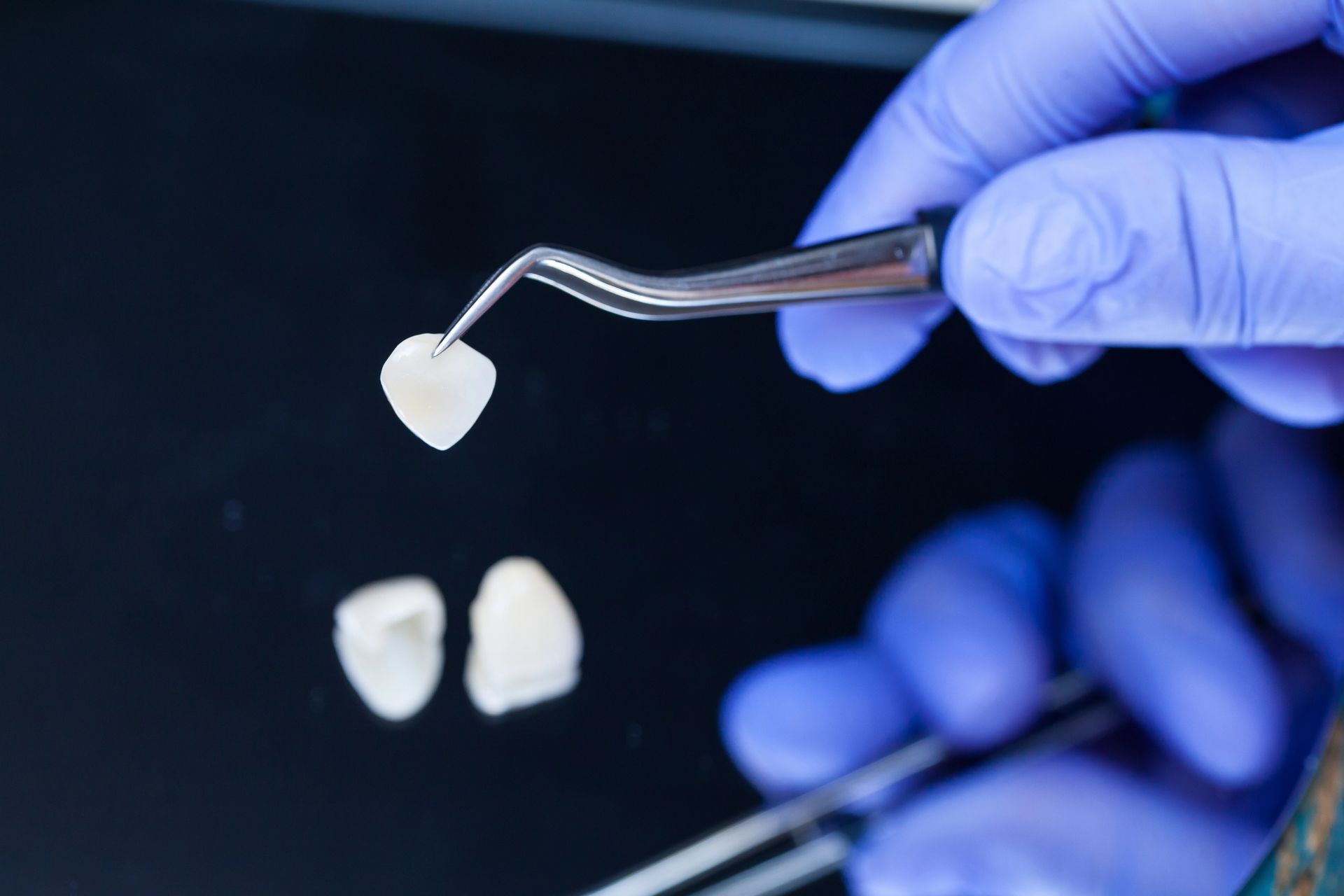
Are you trying to decide between composite vs porcelain veneers for your smile? Both options offer unique benefits and can enhance your appearance, but the right choice depends on factors like durability, cost, and aesthetic preferences. Composite vs Porcelain Veneers Understanding the materials used in dental veneers is crucial when considering composite vs porcelain veneers for enhancing your smile. Composite veneers are crafted from a resin material that is applied directly to the teeth, allowing for a more flexible and less invasive approach. On the other hand, porcelain veneers are made from a ceramic material that is custom-fitted and bonded to the teeth, offering a more durable and natural-looking finish. When evaluating composite vs porcelain veneers, it's important to consider the aesthetic and functional differences between these materials. While composite veneers can be more cost-effective and quicker to apply, porcelain veneers are often praised for their longevity and resistance to staining. For those interested in exploring how veneers can address specific dental concerns, such as misalignment, you might find valuable insights in our article on Dental Veneers for Crooked Teeth: Can They Straighten Your Smile? Aesthetic Differences When considering composite vs porcelain veneers, one of the primary factors to evaluate is their aesthetic appeal. Composite veneers are known for their ability to be shaped and polished directly on the teeth, allowing for a more immediate transformation. However, they may not always match the natural translucency and luster of real teeth as effectively as porcelain veneers. Porcelain veneers, on the other hand, are crafted in a lab and can be customized to mimic the natural appearance of tooth enamel, often resulting in a more lifelike and radiant smile. The choice between composite vs porcelain veneers can significantly impact the overall look of your smile. While both options aim to enhance dental aesthetics, porcelain veneers are often praised for their superior ability to resist stains and maintain their color over time. This makes them a popular choice for those seeking a long-lasting solution. For more information on how these options can enhance your smile, visit our page on Veneers in Columbia . Durability and Longevity When considering composite vs porcelain veneers, understanding their durability and longevity is crucial. Composite veneers are known for their affordability and ease of application, but they generally have a shorter lifespan compared to porcelain veneers. Porcelain veneers, on the other hand, are renowned for their strength and resistance to staining, often lasting significantly longer. The choice between composite vs porcelain veneers can impact how long your smile maintains its aesthetic appeal, with each option offering distinct advantages in terms of wear and tear over time. Cost Comparison When considering composite vs porcelain veneers, cost is a significant factor for many individuals. Composite veneers are generally more affordable, making them an attractive option for those on a budget. On the other hand, porcelain veneers tend to be more expensive due to their durability and natural appearance. The choice between composite and porcelain veneers often depends on personal preferences and financial considerations. For more information on dental options, visit Design Dentistry Columbia, your trusted Columbia Dentist . Application Process When considering composite vs porcelain veneers, understanding the application process is essential. Composite veneers are typically applied directly to the teeth in a single visit, where the dentist sculpts the material to achieve the desired shape and appearance. In contrast, porcelain veneers require a more involved process, often taking two or more visits. Initially, a mold of the teeth is taken, and temporary veneers may be placed while the custom porcelain veneers are crafted in a dental lab. Once ready, these are bonded to the teeth, offering a durable and aesthetically pleasing result. Maintenance Requirements When considering composite vs porcelain veneers, understanding the maintenance requirements is crucial for long-term satisfaction with your smile. Composite veneers generally require more frequent maintenance due to their susceptibility to staining and chipping, whereas porcelain veneers are known for their durability and resistance to discoloration. Regular dental check-ups are essential for both types to ensure they remain in optimal condition, but the frequency and type of care may vary depending on whether you choose composite or porcelain veneers. Suitability for Different Dental Issues When considering composite vs porcelain veneers, it's important to understand their suitability for various dental issues. Composite veneers are often chosen for minor cosmetic adjustments, such as small chips or gaps, due to their ability to be easily shaped and applied. On the other hand, porcelain veneers are typically preferred for more significant transformations, as they offer a durable and natural-looking solution for issues like severe discoloration or misalignment. Each type of veneer has its own strengths, making them suitable for different dental needs and aesthetic goals. Time Investment When considering composite vs porcelain veneers, understanding the time investment involved is crucial. Composite veneers typically require less time to apply, often completed in a single visit, making them a quicker option for those with busy schedules. On the other hand, porcelain veneers usually demand a more extended process, often involving multiple appointments to ensure a precise fit and natural appearance. This difference in time commitment can be a significant factor when deciding between composite vs porcelain veneers for enhancing your smile. Potential for Staining When considering composite vs porcelain veneers, one important factor to evaluate is their potential for staining. Composite veneers, made from a resin material, are more susceptible to discoloration over time due to their porous nature. This can lead to a gradual change in appearance, especially if exposed to substances like coffee, tea, or tobacco. On the other hand, porcelain veneers are known for their resistance to stains, maintaining their color and brightness for a longer period. This difference in staining potential is a key consideration when choosing between composite vs porcelain veneers for enhancing your smile. Conclusion Deciding between composite vs porcelain veneers can be challenging, but understanding your options is the first step. For more information, call us at (803) 291-5782 or read our reviews on Google Maps .
Temporary Dental Crown Care Tips How to Protect Your Tooth
Isaiah Davis • February 13, 2025
Are you curious about temporary dental crown care tips and how to protect your tooth during this transitional phase? Understanding the basics of maintaining a temporary crown can help ensure your tooth remains safeguarded until your permanent crown is ready. Proper care involves being mindful of your dental hygiene and habits to prevent any complications.
Temporary Dental Crown Care Tips
Understanding Temporary Crown Basics
Temporary dental crown care tips are essential for anyone who has recently received a temporary crown. These crowns serve as a short-term solution to protect your tooth while you wait for a permanent crown. Made from less durable materials, temporary crowns are designed to shield the tooth and maintain its position in the mouth. They are crucial in preventing further damage or discomfort, ensuring that your dental health remains stable during the interim period.
Understanding the role of temporary crowns can help you appreciate their importance in the overall dental restoration process. While they are not as robust as permanent crowns, they play a vital role in maintaining oral health. For more information on choosing the right materials for permanent crowns, you can explore our guide on Best Dental Crown Material for Molars Choosing the Right Option.
Temporary Dental Crown Care Tips
When you have a temporary dental crown, it's important to be mindful of the foods you consume to ensure the crown stays intact and your tooth remains protected. Hard foods like nuts and popcorn can pose a risk as they may cause the crown to crack or dislodge. Sticky foods such as caramel and chewing gum should also be avoided, as they can pull the crown off the tooth. Additionally, try to steer clear of crunchy vegetables and fruits that require significant force to bite into, as these can also compromise the stability of your temporary crown.
Soft foods are generally safer options when you have a temporary dental crown. However, it's still crucial to be cautious with your choices. Avoiding foods that are too hot or too cold can help prevent discomfort and potential damage to the crown. For more information on maintaining your dental health and understanding the nuances of temporary dental crown care tips, consider exploring our Dental Crown Services Columbia page.
Managing Sensitivity and Discomfort
Experiencing sensitivity and discomfort is a common occurrence after receiving a temporary dental crown. This sensation often arises due to the tooth's exposure to temperature changes and pressure, which can affect the underlying nerves. The discomfort may vary in intensity, with some individuals noticing a mild tingling while others might feel a sharper sensation. It's important to understand that this is a natural response as the tooth adjusts to the temporary crown. Over time, the sensitivity typically diminishes as the tooth acclimates to its new covering, allowing for a more comfortable experience until a permanent solution is in place.
Recognizing Crown Complications
Understanding potential issues with your temporary dental crown is crucial for maintaining oral health. While these crowns are designed to protect your tooth until a permanent solution is in place, complications can arise. Common signs of trouble include persistent discomfort, sensitivity to temperature changes, or an unusual fit that affects your bite. Being aware of these symptoms can help you address any issues promptly and ensure your temporary dental crown care tips are effective. If you notice any of these complications, it might be beneficial to consult with a professional. For those in the area, Design Dentistry Columbia offers expertise in dental care, and you can find more information by visiting their Columbia Dentist
page.
Temporary Crown Lifespan Insights
Understanding the lifespan of a temporary dental crown is essential for maintaining oral health during the interim period before receiving a permanent crown. Typically, temporary crowns are designed to last a few weeks to a couple of months, providing a short-term solution that protects the tooth and maintains its function. The duration can vary based on individual circumstances, such as the location of the crown in the mouth and personal oral hygiene practices. While these crowns are not intended for long-term use, they play a crucial role in safeguarding the tooth and surrounding gums. Being aware of the expected lifespan is an integral part of temporary dental crown care tips, ensuring that individuals are prepared for the transition to a permanent solution.
Oral Hygiene with Temporary Crowns
Maintaining oral hygiene with temporary crowns is crucial for ensuring the longevity and effectiveness of your dental work. While these crowns are not permanent, they play a vital role in protecting your tooth until a permanent solution is in place. As part of your temporary dental crown care tips, it's important to focus on gentle cleaning practices that help prevent plaque buildup and maintain gum health. Regular brushing and flossing, while being mindful of the temporary crown, can contribute to overall oral health and support the temporary crown's function. By prioritizing oral hygiene, you can help ensure that your temporary crown remains secure and your mouth stays healthy.
Handling Crown Emergencies
In the realm of temporary dental crown care tips, understanding how to handle crown emergencies is crucial for maintaining oral health. A dislodged or damaged temporary crown can be an unexpected inconvenience, potentially leading to discomfort or sensitivity. It's important to remain calm and assess the situation carefully. While temporary crowns are designed to protect your tooth until a permanent solution is in place, they can occasionally become loose or fall out. In such cases, it's essential to address the issue promptly to prevent further complications. Being informed about the steps to take during a crown emergency can help ensure that your dental health remains on track while awaiting a more permanent restoration.
Temporary Crown Maintenance Essentials
Understanding the essentials of temporary crown maintenance is crucial for anyone navigating the interim period before receiving a permanent crown. Temporary dental crown care tips often emphasize the importance of being mindful of your dental hygiene routine to ensure the longevity and stability of the temporary crown. This involves maintaining a gentle approach to brushing and flossing around the crown area to prevent any dislodgement or damage. Additionally, being aware of your eating habits can play a significant role in preserving the integrity of the temporary crown, as certain foods might pose a risk to its stability. By focusing on these general maintenance essentials, you can help protect your tooth and ensure a smooth transition to your permanent dental solution.
Temporary Crown Myths Debunked
When it comes to temporary dental crown care tips, there are several myths that can lead to confusion and misinformation. One common misconception is that temporary crowns are indestructible, when in fact, they are designed to be a short-term solution and require careful handling. Another myth is that temporary crowns do not need any special care, but maintaining good oral hygiene is crucial to prevent complications. Additionally, some believe that temporary crowns are purely cosmetic, overlooking their essential role in protecting the tooth and maintaining alignment until a permanent crown is placed. Understanding these myths can help in appreciating the importance of proper temporary dental crown care.
Conclusion
For more information on temporary dental crown care tips, feel free to call us at 803-408-7163
or check out our Google Maps
reviews.

Are you curious about dental veneer maintenance tips to keep your veneers in top shape? Proper care ensures their longevity and maintains their aesthetic appeal, allowing you to enjoy a bright smile for years. Dental Veneer Maintenance Tips Understanding Dental Veneers is crucial for anyone looking to maintain their smile. Dental veneers are thin shells designed to cover the front surface of teeth, enhancing their appearance. They are typically made from porcelain or composite resin materials and are custom-fitted to each individual's teeth. While they are durable, understanding the basics of dental veneer maintenance tips can help ensure they remain in excellent condition over time. For those new to veneers, it's important to familiarize yourself with the process and what it entails. You can learn more about the journey by visiting our page on Getting Veneers for the First Time: What to Expect Before and After . This resource provides valuable insights into the initial steps and aftercare, which are essential for maintaining the longevity and appearance of your veneers. Benefits of Natural-Looking Veneers Natural-looking veneers offer a seamless blend with your existing teeth, enhancing your smile without drawing attention to the fact that you have had dental work done. These veneers are crafted to mimic the translucency and color of natural teeth, providing a realistic appearance that boosts confidence and self-esteem. By maintaining your veneers properly, you can ensure they continue to look as natural as the day they were applied. Incorporating dental veneer maintenance tips into your routine is essential for preserving the aesthetic appeal of your veneers. Regular care helps prevent discoloration and damage, ensuring that your veneers remain indistinguishable from your natural teeth. For more information on achieving a flawless smile with veneers, visit Columbia's Best Dental Veneers . Choosing the Right Material When considering dental veneer maintenance tips, selecting the appropriate material is crucial for longevity and appearance. Different materials offer varying levels of durability, stain resistance, and aesthetic appeal, which can impact how well your veneers maintain their look over time. Understanding the characteristics of each material can help ensure that your veneers remain in top condition, complementing your smile while requiring minimal upkeep. Customization for Individual Smiles Dental veneers are a popular choice for enhancing smiles, and their customization plays a crucial role in achieving a natural look that complements each individual's unique facial features. The process of customizing veneers involves selecting the right shape, size, and shade to ensure they blend seamlessly with the natural teeth, creating a harmonious and aesthetically pleasing appearance. This personalized approach not only enhances the overall smile but also boosts confidence by providing a tailored solution that aligns with personal preferences and dental needs. For those interested in learning more about dental veneer maintenance tips, Design Dentistry Columbia offers insights through their Columbia Dentist services. Importance of Professional Consultation Regular professional consultations play a crucial role in maintaining the longevity and appearance of dental veneers. These appointments allow dental professionals to assess the condition of the veneers, ensuring they remain securely bonded and free from damage. During these visits, any potential issues can be identified early, preventing more significant problems down the line. Additionally, professionals can provide personalized advice tailored to individual needs, helping to maintain the natural look and feel of veneers. Prioritizing these consultations is essential for anyone looking to keep their veneers in optimal condition over time. Color Matching Techniques In the realm of dental veneer maintenance tips, understanding color matching techniques is essential for ensuring your veneers blend seamlessly with your natural teeth. Achieving a harmonious appearance involves considering factors such as the shade, translucency, and texture of your veneers in relation to your existing teeth. This process requires a keen eye for detail and an understanding of how different lighting conditions can affect the perceived color of your veneers. By focusing on these elements, you can maintain a consistent and natural look that enhances your smile's overall aesthetic. Maintenance and Care Tips Proper dental veneer maintenance tips are essential for ensuring the longevity and appearance of your veneers. Regular attention to oral hygiene can help maintain the natural look and feel of your veneers, keeping them in top shape. By focusing on consistent care, you can preserve the integrity of your veneers and enjoy a confident smile for years to come. Cost Considerations and Budgeting When it comes to dental veneer maintenance tips, understanding the cost considerations and budgeting is crucial for long-term care. While veneers can enhance your smile, it's important to factor in potential expenses associated with their upkeep. Regular check-ups and any necessary adjustments can contribute to the overall cost, so planning your budget accordingly is essential. Being aware of these financial aspects ensures that you can maintain your veneers effectively without unexpected financial strain, allowing you to enjoy the benefits of your investment over time. Real-Life Success Stories Many individuals have experienced remarkable transformations in their smiles thanks to dental veneers. These real-life success stories highlight the importance of proper dental veneer maintenance tips in preserving the beauty and functionality of veneers. From professionals who rely on their smiles for career success to everyday people who simply want to feel more confident, maintaining veneers has proven to be a crucial aspect of their dental care routine. By following essential dental veneer maintenance tips, these individuals have managed to keep their veneers looking pristine and natural, ensuring their smiles remain a source of pride and joy for years to come. Conclusion For more information on dental veneer maintenance tips, call us at (803) 291-5782 or check out our Google reviews .

